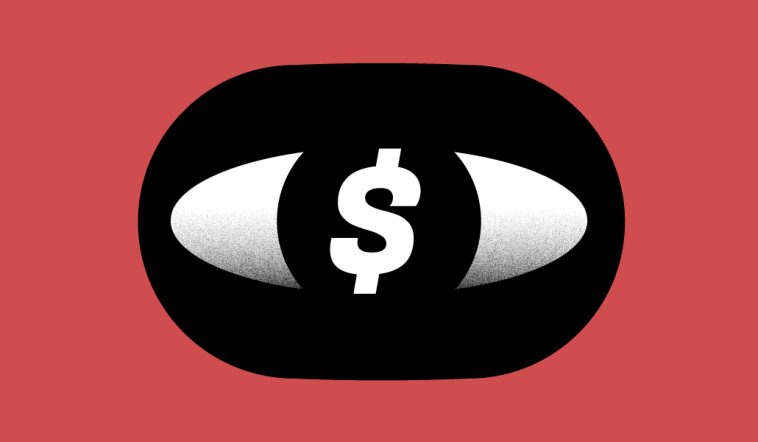Telcos and ad tech: the media world’s messiest on-again, off-again relationship. T-Mobile’s $600 million cash swoop for outdoor ad specialist Vistart is the latest reunion in this turbulent love story.
Slated to close this spring pending approval, its ad tech’s first notable deal of the year arrives as outdoor advertising cements itself as the sector’s rising star.
What truly stands out, though, is the deja vu. The bit where hundreds of millions, if not billions of dollars, exchange hands only to come crashing down years later? Haven’t we seen this movie before?
T-Mobile calls the deal a “tremendous opportunity” for its ads business, while industry chatter dubs it a potential game-changer. The familiar chorus of hype and hyperbole rings out — because in media, some stories never change.
First, it’s worth delving into the history of the investment thesis, with its countless false dawns, to get some perspective.
Telecom operators in Western Europe, North America, and notably Singtel in the Asia-Pacific region ventured into digital advertising to diversify revenues, hoping to leverage their vast customer data and establish themselves as true power players on Madison Avenue.
Despite notable investments and acquisitions, they faced challenges such as regulatory hurdles, competition from tech giants, and operational inefficiencies, which led to their eventual exit.
AT&T’s $1.6 billion acquisition of AppNexus in 2018 marked one of the most ambitious moves into digital advertising. AppNexus became the foundation of AT&T’s Xandr, which combined telecom and media assets from its $85 billion Time Warner acquisition.
However, intense competition from tech giants, operational complexities, and tighter privacy regulations limited Xandr’s success led to internal disagreements. By 2021, AT&T sold Xandr to Microsoft for approximately $1 billion, marking its exit and a significant marker to the dominance of Facebook and Google in adland.
Similarly, Verizon pursued digital advertising aggressively through its Oath division, formed after acquiring AOL in 2015 for $4.4 billion and Yahoo in 2017 for $4.48 billion. Oath aimed to leverage telecom data with digital media assets but failed to compete effectively with Google and Facebook. After rebranding as Verizon Media in 2019, the division continued to underperform, leading Verizon to sell it to Apollo Global Management for $5 billion in 2021 — further evidence suggesting media and telco businesses just can’t mix.
Elsewhere, Spain-based Telefónica has arguably been the leading light in this regard in Europe. In 2012, it launched Telefónica Dynamic Insights and later invested in ad tech platform Axonix, then acquired the U.K.-based Blinkbox in 2015.
Arguably, the most high-profile play was in the U.K., where three of the leading telcos, EE, O2, and Vodafone, banded together to form an ad tech joint venture known as Weve in 2012, with O2 later buying out the former two telcos in 2015.
Following the buyout, Weve shifted its focus toward programmatic advertising and beacon technology to improve location-based targeting and data analytics. However, by March 2020, Weve decided to step away from mobile advertising altogether, with many crediting this move to the decline in SMS usage, the rise of alternative communication platforms, and the dominance of tech giants like Facebook and Google in mobile advertising.
Further afield, leading APAC telco Singtel marked its entry into the global digital advertising market with its $321 million acquisition of Amobee in 2012. Amobee further expanded with the $310 million acquisition of Turn, a leading data management platform, in 2017. However, its traction was again foiled by increasing competition, operational costs, and privacy regulations; thus, in 2022, Singtel sold Amobee to Tremor International, a.k.a, Nexxen, for $239 million, exiting the sector.
Maybe data and identity will be the route in Europe, rather than actually selling media
Kevin Flood
Observers cite the introduction of privacy laws such as GDPR in the EU and CCPA in the U.S., which makes it difficult for such players to scale operations. Simply put, there’s just too much risk and not enough revenue, meaning their nascent media ambition died on the vine.
Sasha Auzins, the chief operating officer of the tech and data consultancy Elaboration, has advised telcos on their ad plans like this in the past and argues that its approach, i.e., with more of an emphasis on the OOH sector, may prove different.
“T-Mobile seems to have significant ambitions with retail screens, with the acquisition of Octopus and now this Vistar acquisition,” he said, adding that the approach feels like it might have more staying power, especially since it’s less entangled with the privacy challenges that have derailed previous efforts.
“Indeed, audience-level segmentation and insight-based targeting are things that T-Mobile can provide and distribute. Hopefully, we’ll see some innovative executions,” added Auzins.
A new approach?
Meanwhile, Kevin Flood, a principal at investment firm FirstParty Capital, raised how telcos in Europe have still maintained an interest in the advertising sector, even if their approach is somewhat modified, positing that “maybe data and identity will be the route in Europe, rather than actually selling media.”
For example, Deutsche Telekom entered digital advertising with Emetriq in 2015, aiming to aggregate anonymized data for programmatic advertising during this timeframe in a manner which it claimed was GDPR-complaint — Emertiq is still an ongoing concern, but limited to the German market.
In the guise of telco-backed Utiq — which announced the appointment of Pagel Colin as director of global clients and Thomas Bailly as director of global agencies — such an assessment appears accurate given its backers: Deutsche Telekom, France Telecom’s Orange, and Telefónica.
Per its promotional material, Utiq, which launched in 2023, offers a Telco-powered first-party identifier that utilizes authentic consent to facilitate responsible digital marketing to produce an “authenticated consent service” that can help publishers and advertisers crack their addressability challenges, such as “dark browsers.”
So, as the U.S. third-largest telco, and three of Europe’s three largest telco groups prepare to put the old band back together again.





GIPHY App Key not set. Please check settings